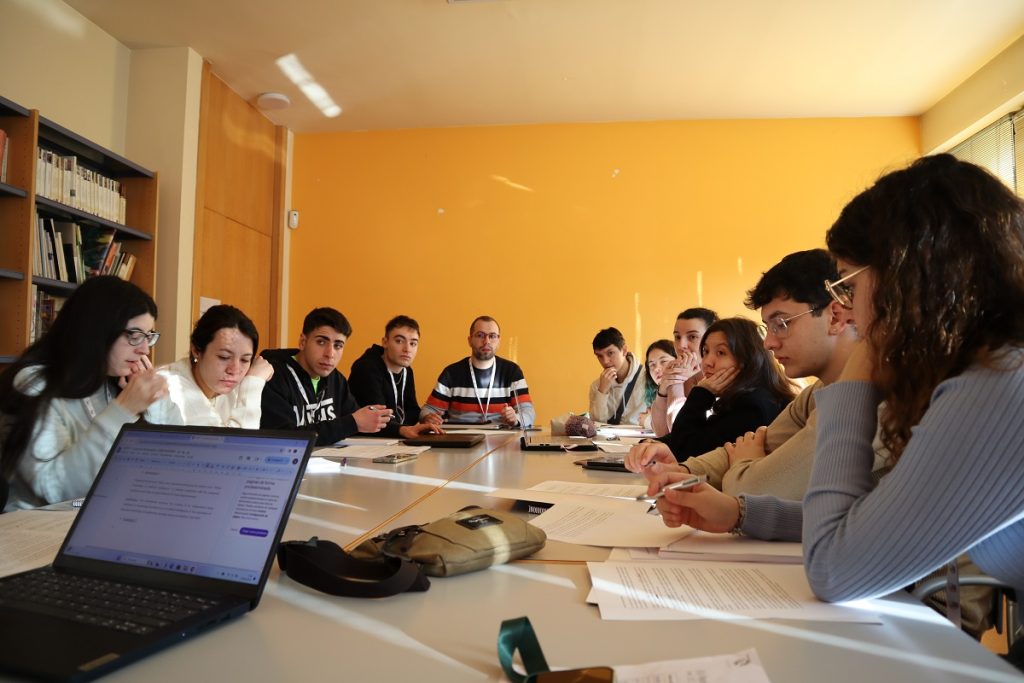Valladolid, 17 February 2024. Press Release: European Council highlights transnational collaboration at Valladolid meeting
During a panel question and answer session with journalists, representatives of the European Council from different countries, including Greece, Spain, Portugal, the Netherlands and Belgium, offered their perspectives on the legislative simulation process and the challenges they face in their respective countries.
The Greek delegates, Aitor Tesón and Humberto Silva, said: «This meeting is a unique opportunity to exchange ideas and experiences with our European colleagues. Collaboration between countries is essential to address the common challenges we face in the EU, such as the regulation of artificial intelligence».
The Spanish representatives, Clara de Blas and Noemi Pasquale, highlighted the diversity of opinions present at the meeting: «It is inspiring to see how young people from different countries can meet and work together to find solutions to current problems. We are learning a lot from each other.
The Portuguese delegation, led by Giovanni Indelicato and accompanied by Laura Gonzalez, emphasized the importance of youth participation in European politics: «Young people are the future of Europe, and it is crucial that they have a say in the decisions that will affect them. Events like this encourage civic participation and commitment to the European project.».
Representing the Netherlands, Regina Coelho and Laura Calderon, highlighted the need to find a balance between the protection of individual freedoms and public safety: «The discussion on the wearing of the Islamic headscarf is complex and sensitive. It is important that we find solutions that respect the rights of all European citizens.»
Finally, Belgian Prime Minister Samuele Giovenco and Deputy Noelia Dominguez stressed the importance of cooperation between member states: «Only by working together can we achieve significant progress on issues such as artificial intelligence and cultural diversity. This meeting is a clear example of the unity in diversity that defines the European Union».
After intense negotiations, the European Council finally failed to reach an agreement on artificial intelligence legislation on deceased family members, as they faced difficulties in reaching consensus after the set readings. On the other hand, they did accept all the amendments proposed by the European Parliament regarding Islamic headscarf policies, demonstrating a joint commitment to the values of inclusion and diversity in the European Union.
The exchange of ideas and collaboration between representatives from different countries has been fundamental in moving towards solutions that reflect Europe’s shared interests and values.
